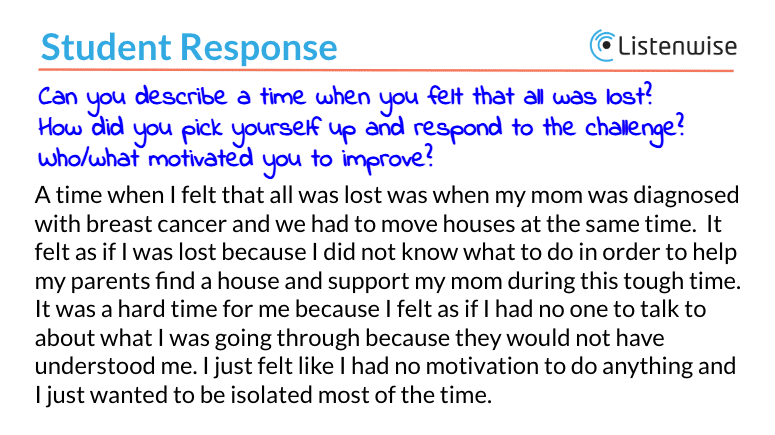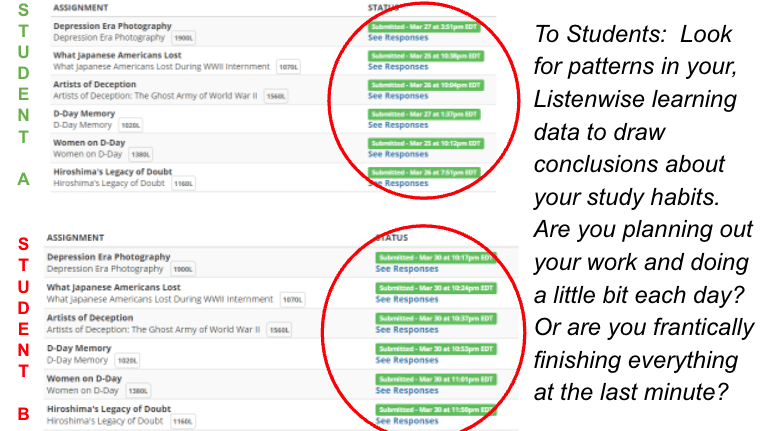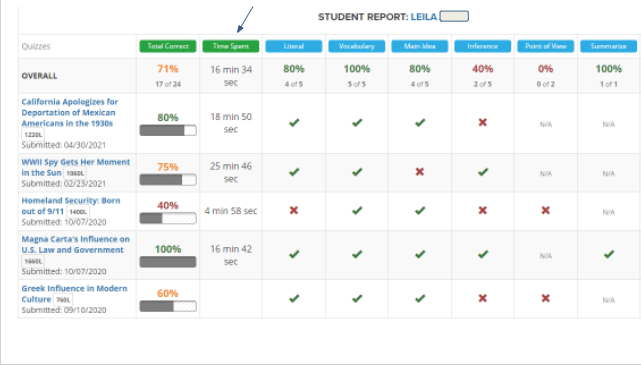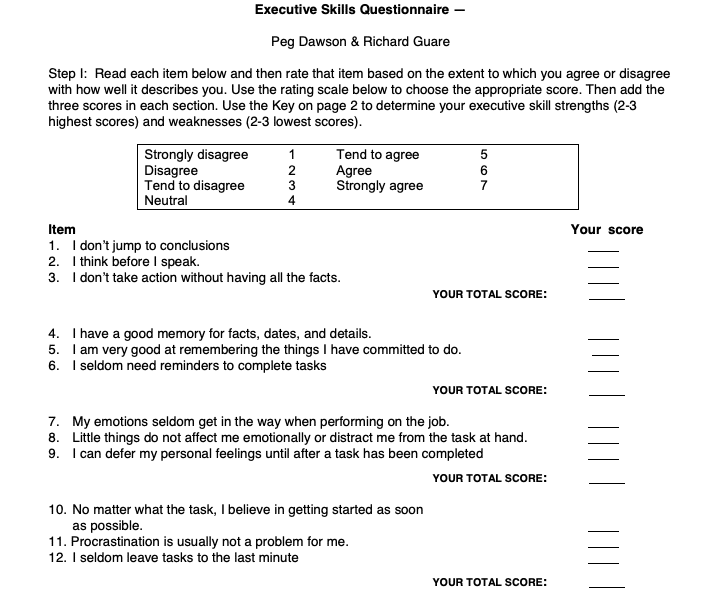Last Updated on January 17, 2023
How can podcasts teach SEL skills? Can podcasts provide opportunities for teachers to integrate the CASEL framework in their classroom? Absolutely, according to California social studies teacher Dr. Scott Petri.
In 2021, we hosted a webinar with Dr. Petri where he shared practical teaching strategies for using podcasts to teach SEL skills to students. Did you miss the webinar? You can watch it now on the Listenwise YouTube channel:
Below is a summary of the practical lesson ideas and teaching strategies shared by Dr. Scott Petri during his conversation with Listenwise’s Monica Brady-Myerov, and how they support development of specific SEL competencies.
Social Awareness
The CASEL framework defines social awareness as the ability to “understand the perspectives of and empathize with others, including those from diverse backgrounds, cultures, and contexts.” Listening to another person’s perspective in their own voice is a powerful way to build social awareness. It is often easier to appreciate someone else’s perspective and have empathy for them when you hear their story told in their own words. There is even research that shows that our brain waves will actually start to mirror those of the storyteller. When listening to someone’s story, your brain makes you feel like you are actually there, and thus builds empathy and connection.
Oral History Project
In our SEL-focused webinar, Dr. Petri shared how he uses an oral history project on the events of September 11, 2001, to foster social awareness in his students. Over the years, he has found that this assignment connects students to their family members’ life experiences and perspectives through critical listening.
Given the age of his students, Dr. Petri often hears feedback from parents that this assignment gave them an opportunity to have a rare extended conversation with their teen. Students have also reported having eye-opening discussions with their parents about a personal experience of theirs that may not have been shared previously. For example, one student shared the 9/11 perspective of their mother, who is Muslim and wears a hijab. Prior to the student’s interview, the mother had not shared much of her experience being a Muslim in America before and after September 11th.
Additional project components like typed transcripts, fact-checking, and corroboration using The 9/11 Report, require students to practice active listening and ask deeper questions. Listening to audio isn’t passive — it’s active. Through this oral history project, Dr. Petri’s students are given an opportunity to develop their social awareness skills and listening skills at the same time.
First Person Podcast
Another assignment shared by Dr. Petri is his first person podcast project. In this assignment, students are instructed to choose from a list of topics inspired by Listenwise podcast lessons (e.g., The Dust Bowl, D-Day, Jackie Robinson integrating baseball). The students are then asked to take on the role of an imagined eyewitness narrator create a podcast featuring this “first person” audio. Working as a team, the students write a script, record audio, add in sound effects, and edit to create a finished product.
Dr. Petri has found that this activity allows students to practice collaboration and active listening. Additionally, it provides opportunities for students to give constructive feedback and take others’ perspectives. Often, Dr. Petri sees students putting more effort into a project like this than a traditional written report. Audio reports are also a more appealing option for the 10-30% of his students who find creating video responses to be nerve-wracking.
“What I find (especially with the Listenwise current events) is that they all have opinions about these current events. Most of them want to talk about them, and sometimes I think it’s difficult for teachers to create that space within their curriculum. As a history teacher, that’s part of my job. Not only do they have to understand history, but they have to be able to connect history to current events. That’s one of the reasons I love using Listenwise.”
– Dr. Scott Petri, CA high school social studies teacher
Self-Awareness
Self-awareness can be defined as the ability to take the perspective of and show empathy for others. According to the CASEL framework, an important aspect of developing self-awareness is learning to link feelings, values, and thoughts. This and other aspects of self-awareness are explored and built in Dr. Scott Petri’s lesson “Heroes are Fallible.”
For this lesson, Dr. Petri pairs Hellhound on His Trail by Hampton Sides — a book about the search for MLK Jr. assassin James Earl Ray— with the podcast episode “How Martin Luther King, Jr. Channeled His Anger.” Each of these texts describes what Dr. Petri calls a “Gethsemane moment” (Matthew 26: 36–56), or a pivotal moment when all seems lost to the protagonist and moving forward seems impossible. After exploring those outlined in the texts, Dr. Petri asks his students to complete a writing prompt where they are asked to recall their own Gethsemane moment. When did they feel that all was lost and they couldn’t do it anymore? In his years of assigning this prompt, Dr. Petri has found his students’ responses to be deeply personal, poignant, and sometimes reference trauma.

“As a teacher you stand in front of these students every day and your goal is to try and get them to work… but we don’t know what’s going on in their lives for the other 23 hours that they’re not in our class. This was right before finals and [their responses] made me like my students again! It made me have more sympathy for my students again, just at the time of the year they were most on my nerves!”
– Dr. Scott Petri, CA high school social studies teacher
Self-Management
Active Tracking of Listening Skills Development
Discovering the utility of using data to motivate change in behavior is an important part of developing self-management skills. To support his students in identifying causal links between their behavior or decisions and outcomes, Dr. Petri uses the teacher view of Listenwise to share illustrative data with students.
Here is an example of what one student’s report looks like. Here, Dr. Petri is comparing the student’s time spent listening to a podcast lesson with their scores on the quiz. His goal is that over time all students regularly score 80% or higher on quizzes. Giving students this insight into the relationship between time spent and their score helps build insight and self-motivation in students to improve their scores by setting clear goals. Additionally you can see in the example below that the student is struggling with identifying points of view. By isolating the different skills involved in active listening, Dr. Petri and the student can now work together to build those skills.
Dr. Petri also uses data to support his students in the development of time management and planning skills. Below is a comparison of the study habits of two different students.

Student A is submitting assignments over time, while Student B is turning in all the assignments at once. Looking at these two examples side-by-side, it’s clear that Student B is leaving work to the last minute and therefore may not be practicing good study habits. By sharing this data with students, Dr. Petri is giving them the tools to take personal agency over their study habits and develop skills aligned with self-management.
Goal-Plan-Do-Review
Dr. Petri recommends using a Goal-Plan-Do-Review worksheet as a tool to foster the development of self-management skills in the classroom. Often used in Special Education, he has found that this worksheet can be especially helpful for supporting students who are adjusting to the increased demands of high school academics. Students who have been historically high-achieving can find that their study tools no longer serve them as the content gets more challenging.


Along with the data from the teacher view of Listenwise, students can use their Goal-Plan-Do-Review sheet to take the initiative in setting personal goals based on feedback.
Responsible Decision-Making
The CASEL framework defines responsible decision-making as “the ability to make caring and constructive choices about personal behavior and social interactions across diverse situations.” In our webinar, Dr. Scott Petri shared two ways he works with his students to build their responsible decision-making skills.
Executive Skills Questionnaire
Dr. Petri uses the Executive Skills Questionnaire (Peg Dawson & Richard Guare) to help students self-assess their executive skills and determine the three areas where they need to grow, as well as the three areas where they are already doing well. Over the years, Dr. Petri has found that “task initiation” is a common weakness for his students, reflecting the common problem of procrastination.
Dr. Petri recommends combining this self-assessment activity with having students review their Listenwise learning data. Using these two pieces of data, students can draw conclusions about their study habits and identify weaknesses that can be turned into strengths.
Service Learning Project
In the district where Dr. Scott Petri teaches, students are required to complete a service learning project. This project is meant to give students the opportunity to learn and develop through active participation in a high-quality service activity that meets the needs of the community and fosters civic responsibility. Many districts across the country have a similar required project for their high-school-aged students.
There are a multitude of links between the CASEL competencies, and service learning projects. At the beginning of their project, students work within their school to research and identify a problem to analyze and tackle. Listenwise podcasts can be a great jumping off point for investigation and analysis.
For example, students might listen to “Oil Spill Impacts Wetland Ecosystems” and begin thinking about how they can help ecologically valuable areas in their communities. Or students may find inspiration from the story “Miss Navajo Nation’s Community Service,” which talks about how 2019’s winner was chosen for her demonstrated ability to care for her community. Podcasts provide endless opportunities for students to be inspired to better their communities and, in doing so, develop their social and emotional skills.



